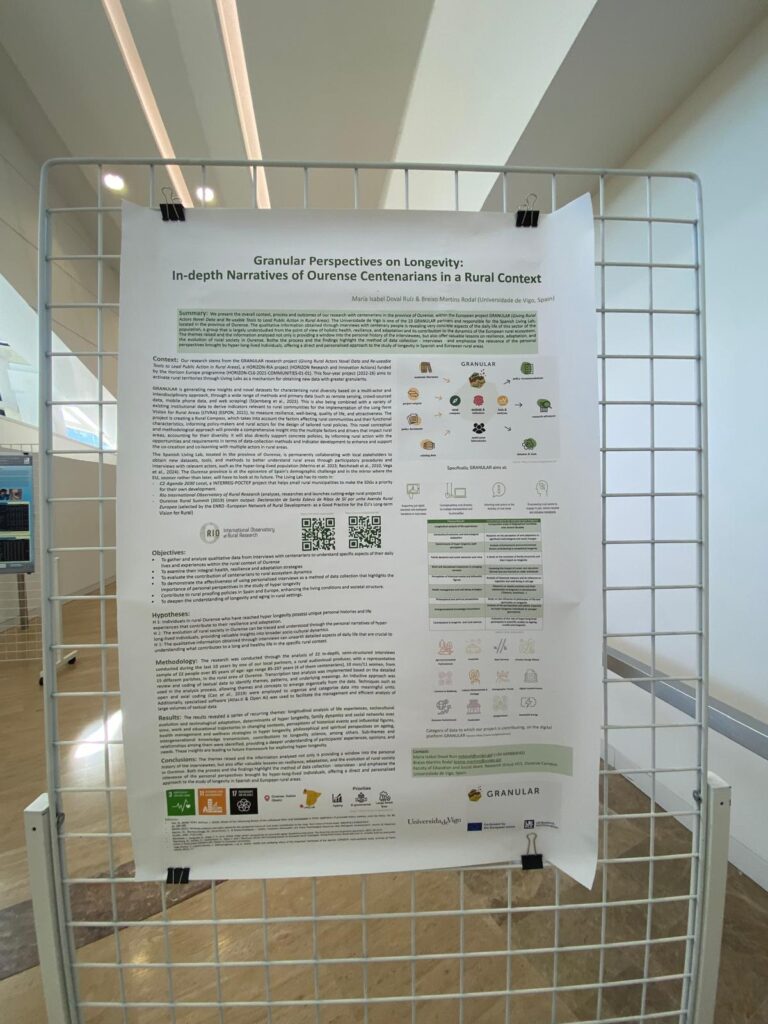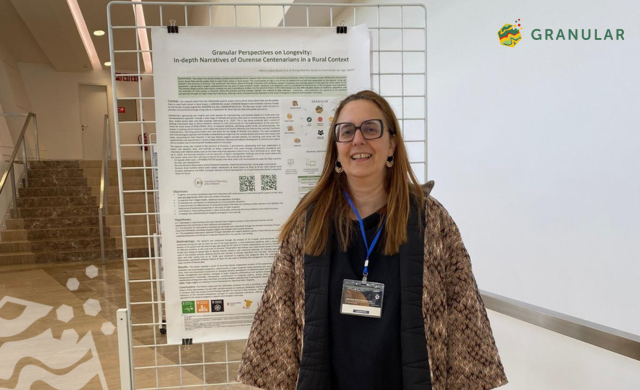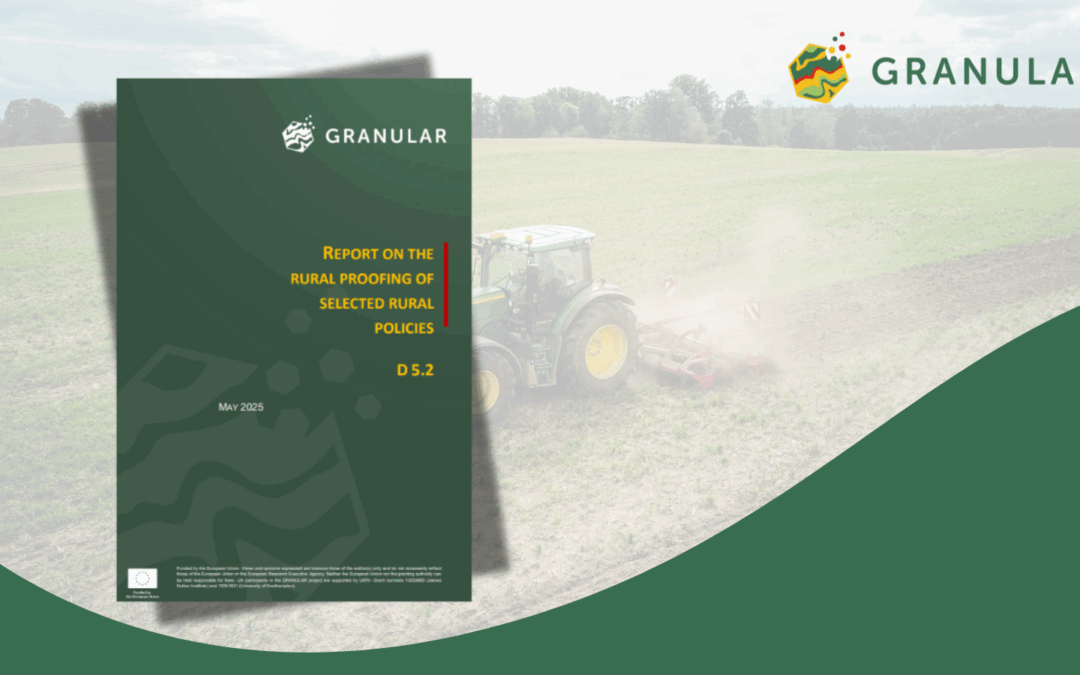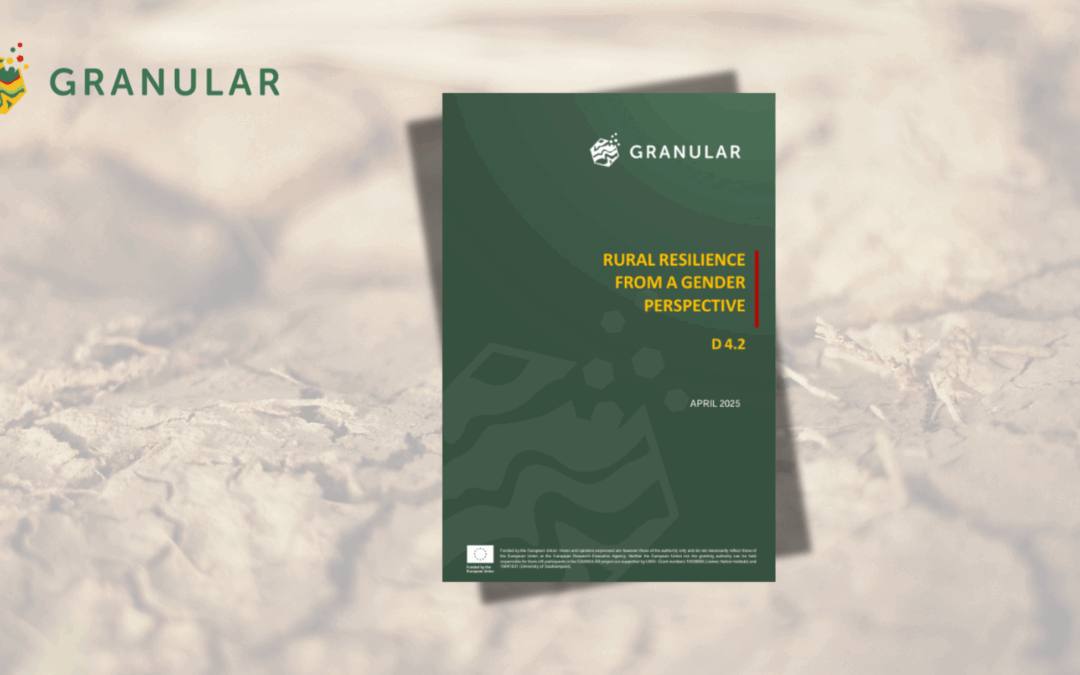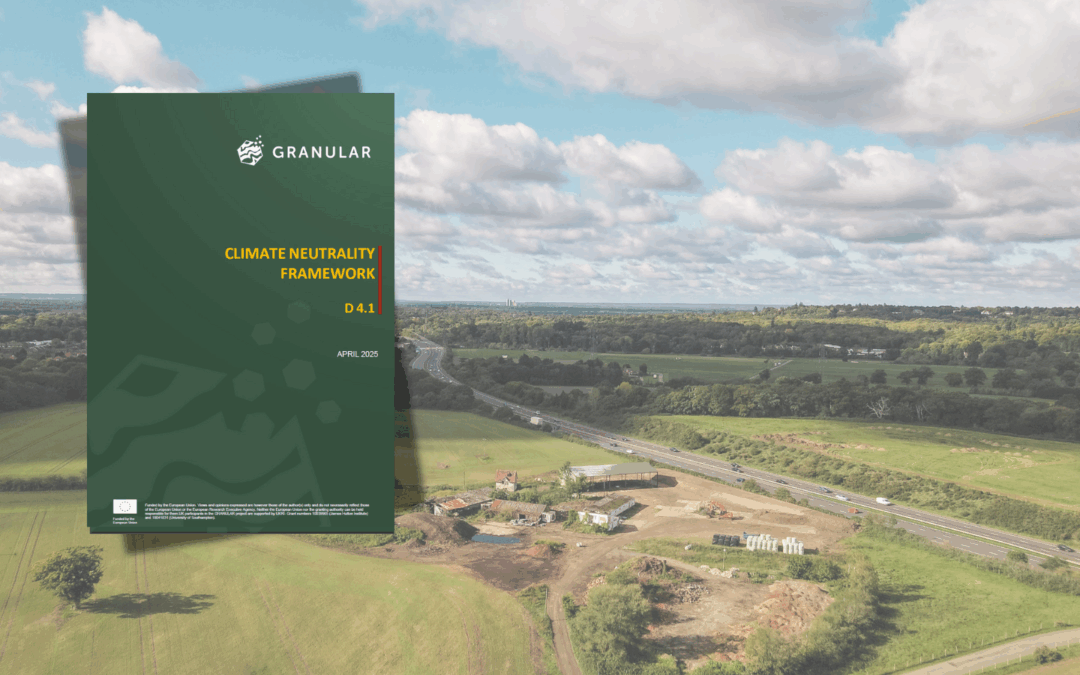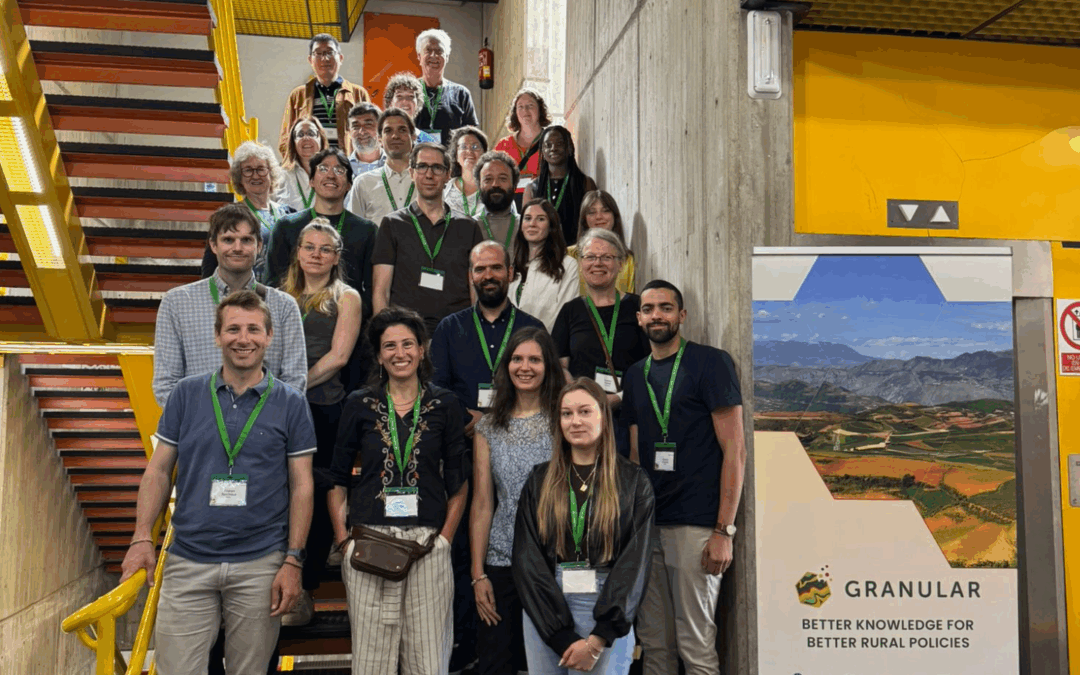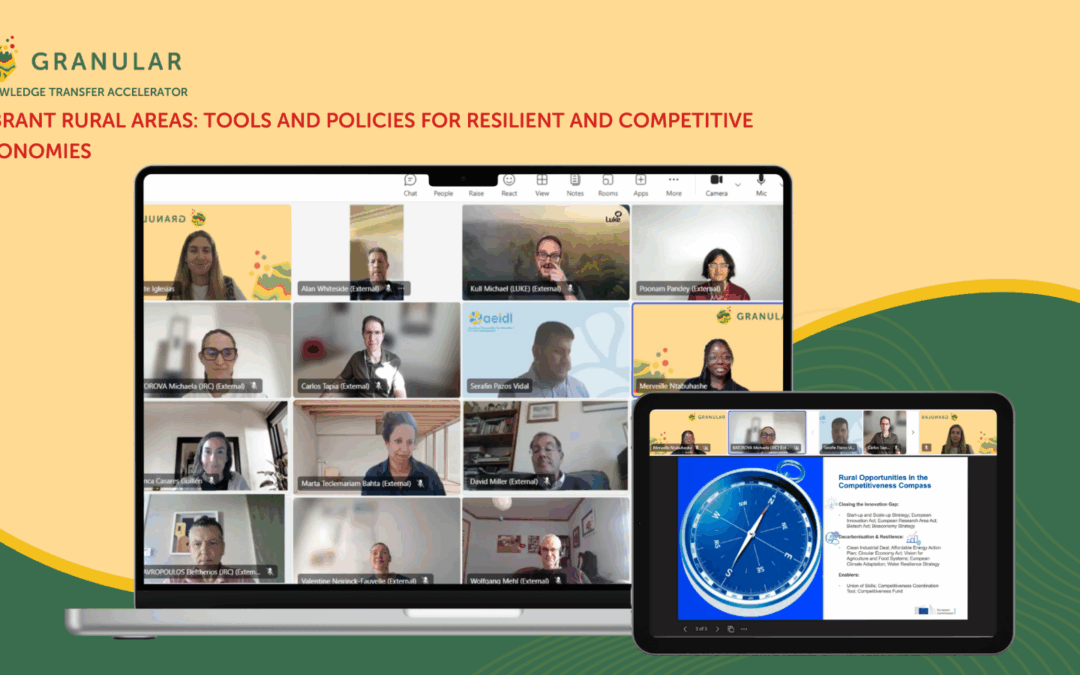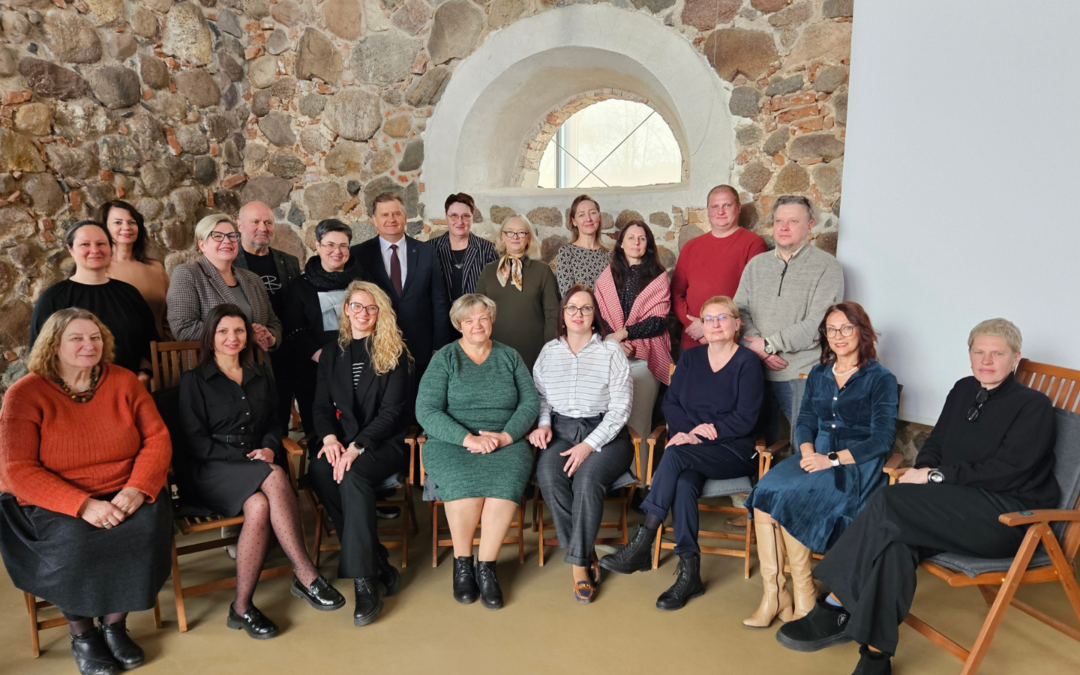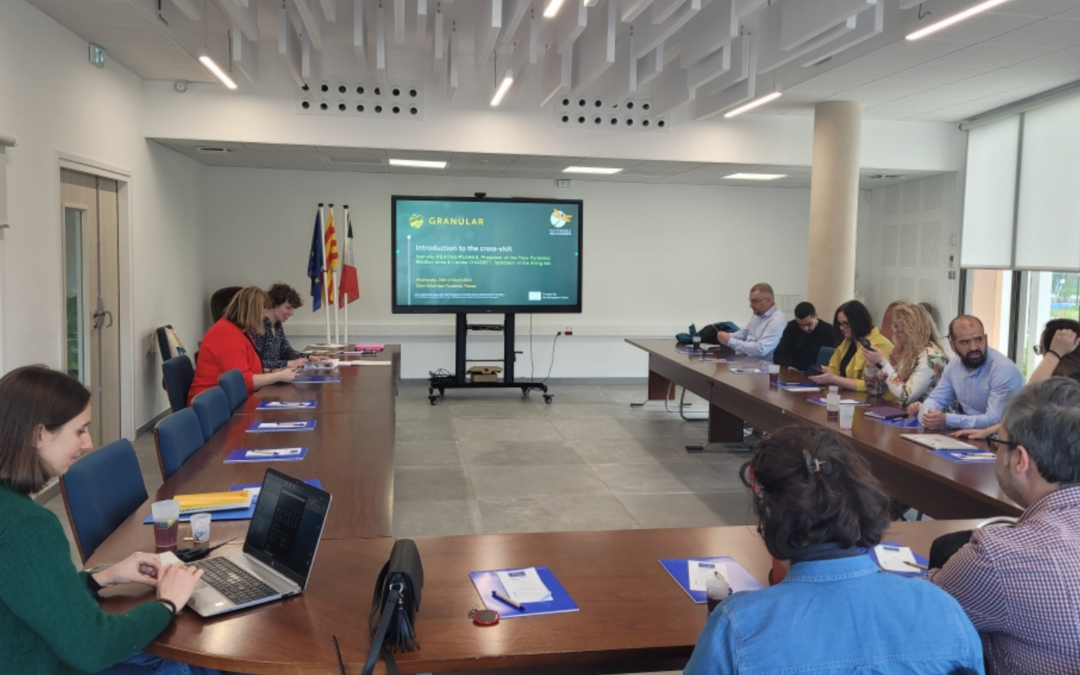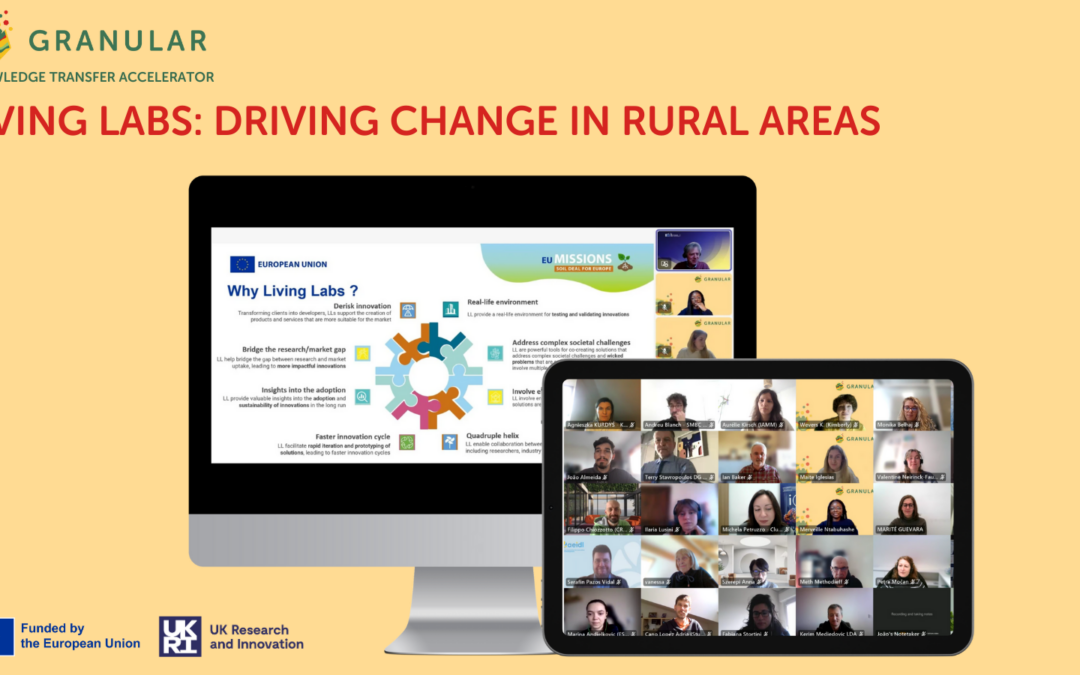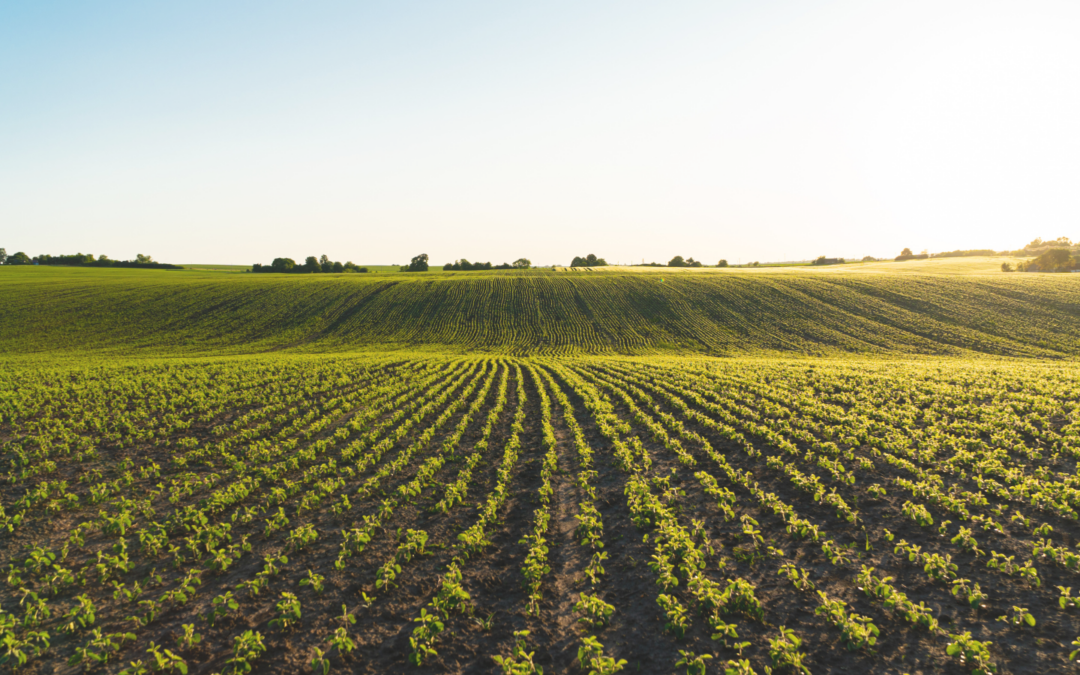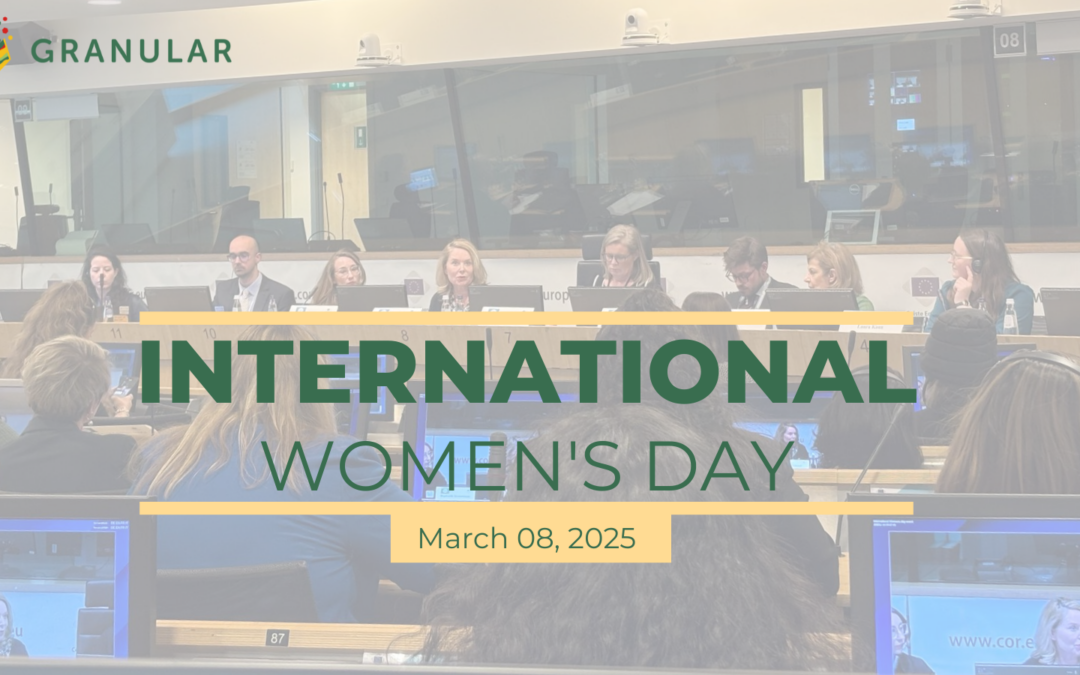On 24-25 May, the University of Vigo, responsible for the Spanish Living Lab of GRANULAR project, has exposed the works they are developing in the context of this project in the “XXXIV International Congress of Geriatrics and Gerontology (Santiago de Compostela, Spain). Researchers María Isabel Doval and Breixo Martins have designed and exhibited a poster about their work with centenarians in the province of Ourense (Galicia) through the implementation of a Living Lab in this rural area as a mechanism for obtaining new data with greater granularity.
In this edition, the topic of the Congress was “Longevity: challenges and opportunities. Galicia, a place to live and age healthily”. The focus was on the current significant increase in life expectancy from the point of view of different scientific disciplines: demographic aspects, intrinsic and extrinsic factors determining longevity, biology, life style, health care, gerontology and geriatrics but also opportunities and challenges arising from longevity.
In Galicia, a region with a large part of rural territory, a life expectancy exceeds 83 years, 10 years more than the world average, being one of the most ageing places in the world with 26.3% of people over 65 years of age and with the highest concentrations of centenarian population (76 cases per hundred thousand inhabitants), figures similar to or higher than those of the so-called Blue Zones. According to various projections by international organisations, these ageing levels will be the same as those of the European Union in 2050.
The University of Vigo research aims to demonstrate that personalised interviews effectively highlight personal perspectives, enhancing the understanding of hyper-longevity and aging in rural settings. The concept of longevity now includes living not just for a long time, but also in good health, with autonomy and a good quality of life. Healthy aging, as defined by the World Health Organization (WHO), involves continuously optimising opportunities to maintain and improve physical and mental health, independence, and quality of life. The University of Vigo research team is demonstrating that qualitative data from interviews can reveal important details about daily life, essential for understanding the factors that contribute to long and healthy lives in rural areas. Learn more about the Spanish Living Lab on the GRANULAR website.
